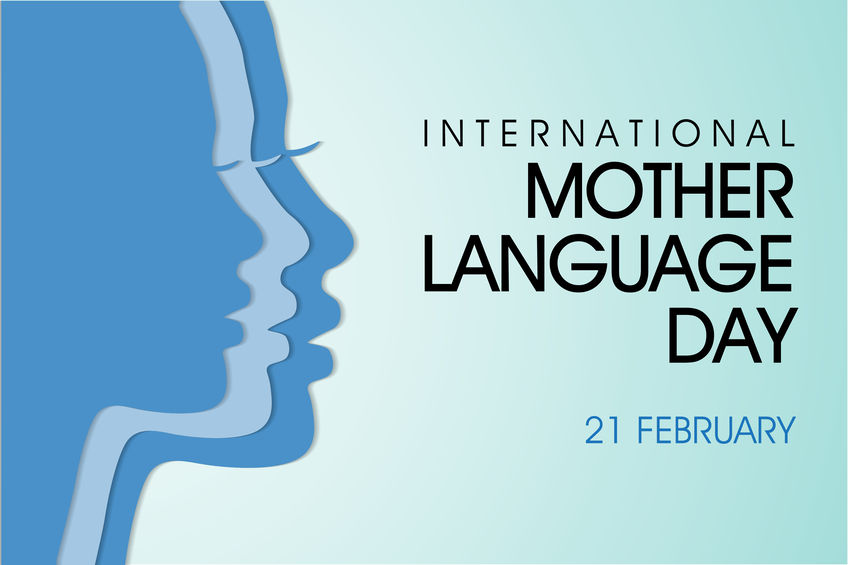By Kumbirai Mafunda
On International Mother Language Day, Zimbabwe Lawyers for Human Rights (ZLHR) called upon policymakers, local and central government to take strategic steps to foster multilingualism and promote the various mother languages in Zimbabwe in order to enhance inclusion in education and broader society.
International Mother Language Day is commemorated every year on 21 February, and it aims to underline the important role of multilingualism in the creation of an inclusive society. In addition, the day is observed in order to promote linguistic and cultural diversity. The day is also an opportunity to reflect on how multicultural and multilingual societies transmit and preserve their traditional knowledge and culture through language. International Mother Language Day is a day to evaluate the steps that are being taken towards the Sustainable Development Goal of advancing inclusion and ensuring that no one is left behind.
The United Nations Educational, Scientific and Cultural Organisation (UNESCO), which is the United Nations agency with the mandate of dealing with all aspects of education, believes that education based on the first language or mother tongue must begin from early childhood care. This will ensure that everyone is presented with an equal opportunity to learn regardless of the language one speaks. The provision of this equal opportunity is key to ensuring that UNESCO’s goals of sustainable development, peace and the eradication of poverty are met.
This year’s observance of the day calls on policymakers, educators, parents and families to scale up their commitment to multilingual education and inclusion in education in order to advance the recovery of the education sector from the adverse impact of the Coronavirus (COVID-19) pandemic. The disruption caused by COVID-19 to the normal education systems across the globe has negatively affected many students, especially those who are not taught in their mother tongue.
The steps taken to cope with the impact of COVID-19, such as switching to online learning in our schools, have disproportionately affected the quality of education of students whose mother language differs from the language of instruction. This is because, only a small proportion of the world’s languages have been given an important place in the education system and public domain, an even smaller proportion of these languages are used in the digital world.
As result, the COVID-19 pandemic has resulted in the exclusion of many students from the attainment of quality education. It is in this context that calls are being made for all sections of society to contribute to the recovery of the education sector through the promotion of multilingualism in education. The recovery of the education sector is instrumental to the attainment of global development goals and thus there should be a committed drive by everyone to ensure that education systems are provided with the necessary support they need.
This year, the focus is on reducing the impact of COVID-19 on the provision of inclusive education through promoting multilingualism.
The recent grade 7 results are a testament to the detrimental impact of the COVID-19 pandemic on the quality of education in the country. The pass rate was 37.11 percent and a number of schools recorded 0 percent pass rates. Despite this, the results highlighted how indigenous languages can play a greater role in improving the overall quality of results of students.
The Zimbabwe School Examinations Council board chairperson, during a virtual meeting conference, revealed that indigenous languages recorded higher subject pass rates in comparison to subjects such as English, Mathematics, Agriculture, and General Paper. Subjects like Shona, Ndebele, Nambya, Tshivenda, Xichangana, and Kalanga recorded pass rates that were over 65 percent.
This picture strengthens the argument that indigenous languages can be used to enhance the provision of quality education to students from various sections of the community. Including the various indigenous languages in Zimbabwe among the languages of instruction in the education system is key to the improvement of the overall quality of students’ results across all subjects.
It is therefore imperative for policymakers, local and central government to expedite the process of expanding the range of languages of instruction in schools.
The celebration of International Mother Language Day is also an opportunity to reflect on the steps that need to be taken to ensure that as many people as possible can have their right to education fulfilled by being instructed in their mother languages. The inclusion of braille among the languages of instruction in schools is crucial to the protection of the right to education for persons living with disabilities. In addition, the inclusion of braille in official government communications is important for the creation of an inclusive society.
On International Mother Language Day, the role played by languages in shaping our identity is celebrated. Communities are built and maintained by languages that act as a means of unifying groups.
Languages also serve to preserve traditional knowledge and wisdom. The inter-connectedness between culture and language means that the promotion of multiculturalism is tied to multilingualism. As a result, coordinated steps should be taken to advance multilingualism for the sake of protecting the cultural diversity of our communities.
On this International Mother Language Day, ZLHR calls upon:
o Policymakers, local and central government to take strategic steps to foster multilingualism and promote the various mother tongues in Zimbabwe in order to enhance inclusion in education and broader society;
o Educators, parents, and families to scale up their commitment to multilingual education in order to advance the recovery of the education sector from the adverse impact of the COVID-19 pandemic;
o Policymakers, local and central government to include the various indigenous languages in Zimbabwe among the languages of instruction in the education system;
o Government to take steps to include braille in official government communications;
o All members of society to promote multilingualism in order to preserve the cultural diversity of Zimbabwe.






